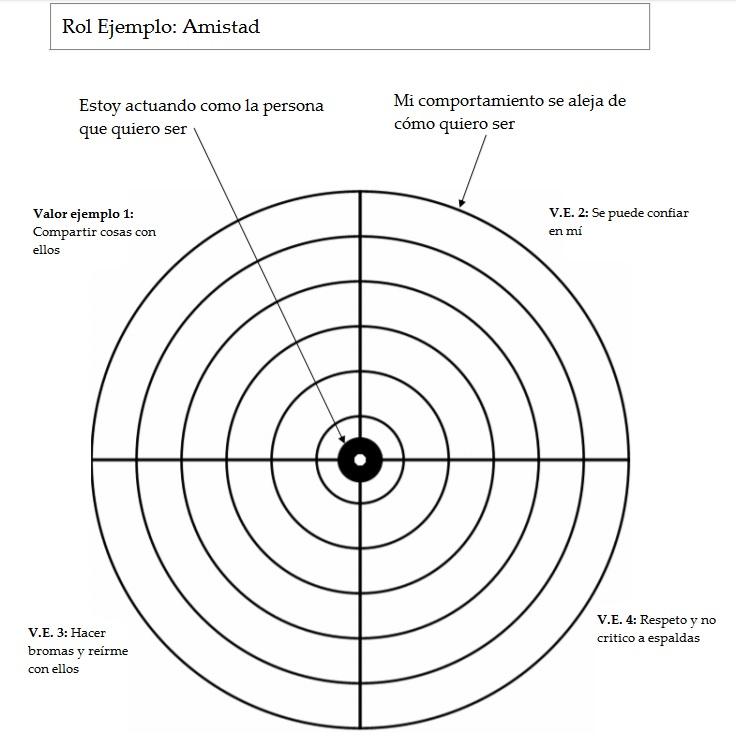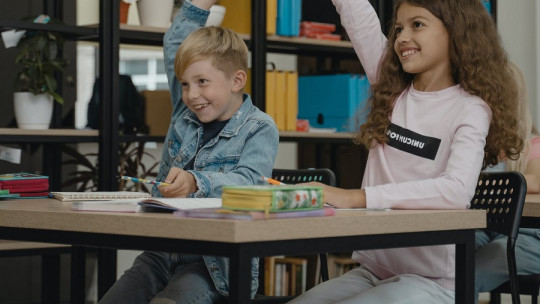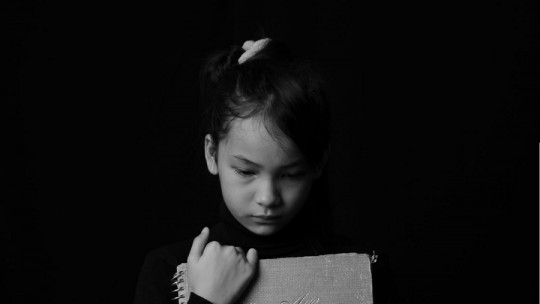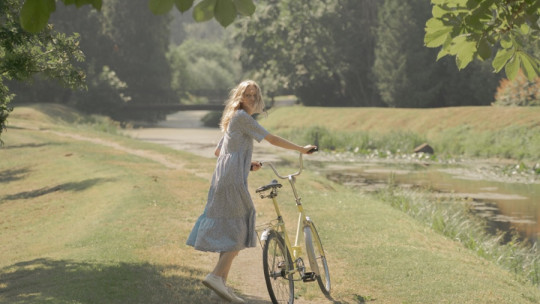
Although calendar years begin on January 1, for many of us the year really starts with back to school in these first weeks of September when we return from vacation and it is time to return to the routine to face a new course.
For adults it can already be complicated how to manage it (in the pre-crisis stage there was even talk of a new diagnosis called “post-vacation depression”) and in childhood or adolescence it was not going to be less
The end of summer and the return to routine
I remember as a child the days before going back to school, the mix of sensations between the sadness of ending the summer, the excitement of seeing friends, a certain nervousness due to the uncertainty of what the new subjects, new classmates and teachers would be like, etc.
During these dates it is normal that our boys and girls experience a wide amalgamation of thoughts and emotions Just as preparing for the new school year with new school supplies, new schedules and extra-curricular activities, it can be very positive to also dedicate a few hours to helping your children see how they are going to approach this new season.
Work on identifying what is important to them, what attitude they want to assume during this next course, what type of colleague, student, friend they want to be, and how they would like to see themselves acting in different situations, in a way that makes them feel proud. at the end of the day, or feeling satisfied when looking forward to the next vacation, can be a very helpful experience for children, and at the same time a rich experience to get to know oneself better, the other, and strengthen trust in parent-child relationships
Back to school: facing new directions and opportunities
“If you don’t know where you’re going, you can end up somewhere else” Yogi Berra used to say, and it’s something that the new trends in psychotherapy and coaching delve into and place more and more emphasis on. Without direction, one drifts. If one is not clear, from his being, the essence of him, what he wants, how he wants to be, where he is going… The easy thing is for day-to-day events to confuse your steps advancing rapidly in different directions and making it difficult to reach the port, and especially, the port that interests you.
On a psychological level, from Acceptance and Commitment Therapy we talk about values; What is important to you in the friendship relationship, as a student, in your role of learning, as a son… How do you want to be? In this way, a direction is obtained, a stable horizon towards which to advance. Having this clear will allow us to be able to continue on the desired route when emotions, thoughts and fleeting doubts appear that may try to take the reins of our actions and make us drift or move away from our course.
Starting a new course can therefore be a great opportunity. to spend some time to see what this direction will be, what things you want to do and what way you want to be during this next season. To talk about the children’s goals and expectations for the next year, and how to address them. Some observations, or guiding questions that may be useful would be:
- What is happening, What things are there today, in your life, that are working well? Are you happy with it?
- In what ways would you like this school year to be different from the previous one?
- During school weeks,how you want to invest your time and energy during school in the playground, when leaving school, extra-curricular activities, homework…?
These or similar questions can serve to determine what to spend time on and what to pay attention to during the next course. Paying attention to this declaration of intentions allows people to act with meaning, being aware that what is done is for a reason, with a meaning, thus avoiding acting on autopilot At the same time, it will allow you to act consciously, instead of reacting automatically to thoughts, emotions… that may appear.
Let’s give an example… Values and barriers in childhood
If for a child it is important in his role as a student, involvement, curiosity when learning and understanding what is explained, perseverance as a habit to improve and grow For example.
When a professor announces an upcoming work or exhibition, the insecurity of speaking in public may appear, of not knowing the syllabus well and being exposed, of not doing well and getting a bad grade
It is possible that in the following weeks, when you consider starting to prepare that work, barriers come to you, thoughts related to those concerns, so that you prefer to postpone that responsibility so as not to attend to it and stop feeling that discomfort, which each time due to the lack of Time progressively complicates the situation.
Keeping in mind the values you have established, how you want to face situations, even living with the worry that it could go wrong, and committing to that direction, to that “how I want to be”, is something that will give meaning to what you do, will make you proud of yourself and will most likely improve your performance in the different areas of your life.
Without knowing it, he will also be getting used to acting with psychological flexibility, learning to move towards what is important to him, taking the direction he or she wants even when the waves are rough, with difficult thoughts, worries, or emotions which is important because psychological flexibility is a central axis for personal well-being both in childhood and later as adults.
Assess processes vs. assess results
It may be advisable, given that the course is established in quarters, raise these issues on a quarterly basis and renew those commitments every 3 months, modifying what is appropriate. Along these lines, it is also worth highlighting the difference between valuing processes or results.
An exam can go wrong for many reasons, leading to a bad result even when the student has worked well during the course and has learned the syllabus. On the contrary, someone can be lucky and obtain a good result by chance.
Focusing on processes means focusing on the quality of what is done, on cultivating an optimal way of functioning, on which to trust, which generates stability and security in the medium and long term. b focusing solely on results is short-term and it can be dangerous as it may appear that something is working well when it really is not, and it can lead to drastic or volatile changes.
Focusing on the process, reviewing it when necessary but following a plan when it has been agreed that it was the best plan to follow, allows you to focus on what is important in the here and now, what needs to be done now, instead of worrying about what results will happen. will obtain, thus also reducing the levels of stress and worry that can generate thinking about things, worrying and ruminating.
As obvious as it may seem, it’s easy to forget that the best way to get a good result here and now is invest energy in what needs to be done here and now (studying, for example), do not spend the time allocated to studying thinking about possible results or anticipating future consequences.
Prepare for going back to school on a psychological level
Although the format is completely free, an example of how to carry out and explain what has been proposed so far could be the following:

For each of the main roles played by the boy or girl in question, the target can be used, which includes some values, how he or she wants to be, within that role. The idea is that there are different ways to act throughout the day or week, and some may mean “hitting the target” while others “missing the mark”, in relation to that value. It can be done with me – friend, me-student, me-son/daughter, me-as a member of a sports team…
Having established the values for different areas of life, the next step is to specify what you do when you are hitting the target, how you behave there, and what ways of acting are missing the mark.
Another alternative may be to prepare a plan of objectives in the direction of a value, for example: given the value of, as a child, being more “older” or “responsible”, there may be a series of objectives or tasks that go towards it: taking care of clearing the table, cleaning my shoes, buying breakfast on Saturdays, making my bed, going alone to catch the bus, being able to go to the movies with friends, going out until X o’clock. on weekends… According to each case and vital moment.
Having now what it means to hit a target, what it means to miss the shot, it is convenient to see what things can cause the shot to be missed, what things appear and make one move the rudder and lose one’s direction.
Generally, there can be internal (thoughts, emotions, etc.) and external (time, economic, physical distance restrictions…). It is positive and convenient to become aware of them, to know that they are there and to gain skill in identifying them, so that when the fear of failing and thoughts related to it appear the person can freely decide whether to obey that fear or act based on their values.
In conclusion
What will it be like to hit the target when a difficulty arises, and learn to stay the course even when the waves suggest hiding in the hold, They are great lessons for today and tomorrow for our boys and girls and exercises like the one proposed can be equally interesting for any other age group.
And you, how do you want to face this new course?








